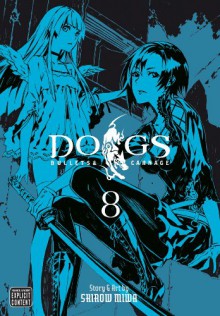
The more I read (and watch movies and TV), the more I value encountering something unlike anything else I ever have before. Black Wave, by Michelle Tea, immersed me in a world new to me in several ways.
Though there are occasionally individual queer characters in the books I read, I haven't read much queer lit where a larger community is represented, especially queer women. Black Wave is set in San Francisco in the 90s at the start, an alternative past where gentrification has strangled most of the culture(s) from the city. In addition, the world appears to be ending due to advanced climate change: it's dangerous to be out in the sun even incidentally, the ocean is a trash wave, many animals are extinct, and invasive species have overtaken the dying native flora. In other words, the environment's death mirrors a cultural and, as is soon apparent, a personal one.
The protagonist, Michelle (like the author), is in her later twenties, and is the kind of addict who tells herself she's not because she doesn't shoot heroin but snorts it and is able to keep her job at a bookstore. She falls in love (or becomes infatuated) easily and hooks up with many of the women who come into her orbit, despite being in a "steady" relationship with a partner more stable than she is. At one point the point of view shifts from Michelle's to her girlfriend's, who thinks she's a sociopath.
That feels pretty accurate, but one of the amazing things about Black Wave is that despite Michelle's objectively unlikable character, I still felt very much invested in her. In part this is due to the humor and energy of the writing. For example:
Michelle seemed more like some sort of compulsively rutting land mammal, a chimera of dog in heat and black widow, a sex fiend that kills its mate. Or else she was merely a sociopath. She was like the android from Blade Runner who didn’t know it was bad to torture a tortoise. She had flipped [her girlfriend] Andy onto her belly in the Armageddon sun and left her there, fins flapping.
I may also personally respond to Michelle because she's a writer, one who's even published and had a sort of local fame. Around the midpoint of the book when she moves to L.A., the narrative is deconstructed as she attempts to write a new book. It becomes clear that not everything we've read so far is as it happened. Another aspect I liked is that somehow this sudden shift doesn't feel like a trick as can happen in many modernist and post-modernist writing and metafiction. How and why I don't know, but after some minor readjustment on my part as a reader, I was still invested.
I've often noted what a structure fanatic I am, and the last major selling point of Black Wave is the way it beautifully spins out in the last third.
Tangents were Michelle’s favorite part of writing, each one a declaration of agency: I know I was going over there but now I’m going over here, don’t be so uptight about it, just come along. A tangent was a fuckup, a teenage runaway. It was a road trip with a full tank of gas. You can’t get lost if you don’t have anywhere to be. This was writing for Michelle: rule free, glorious, sprawling.
As the world ends, people begin dreaming vividly and lucidly about others who exist in the real world, all over the world. They're dreams of connection and love where identity is fluid, and some begin living in them, like Michelle's bosses at the bookstore who hand over the business to her. So the world ends, but somehow Michelle's in a good place, and so was I.

 Log in with Facebook
Log in with Facebook 









